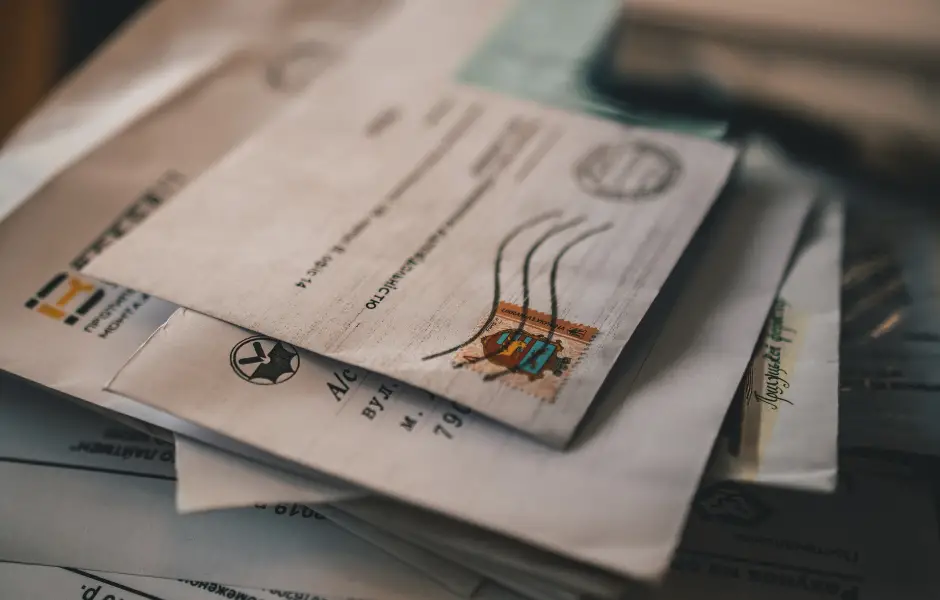Quick Summary:
There is no federal law that prohibits mailing cash, but it is generally not a good idea because it can easily be lost or stolen. If you do choose to mail cash, it is recommended that you take precautions to ensure that it arrives safely at its destination. This might include sending the cash via registered or certified mail, using a secure courier service, or hiding the cash in a more secure way (for example, by enclosing it in a sealed envelope and placing it in a larger envelope). It is also important to keep in mind that some countries may have restrictions on the import or export of cash. It is a good idea to check with the destination country’s embassy or consulate before mailing cash to ensure that it is not illegal to do so.
Keep reading to learn how to legally and safely send money through the mail.
When Is It Illegal To Mail Cash?
As I mentioned earlier, there is no federal law in the United States that specifically prohibits mailing cash. However, there are some circumstances in which mailing cash could potentially be illegal:
- If someone is mailing cash to another person as part of a scheme to launder money (that is, to make illegally-gained proceeds appear legal), this could be considered a violation of federal law.
- If someone is mailing cash to a country that prohibits the import or export of cash without a special license or permission, this could be considered a violation of those restrictions.
- If someone is mailing cash in a way that is intended to deceive or defraud, such as by using false or misleading labels or packaging to make it appear as though the package contains something other than cash, this could be considered mail fraud, which is a federal crime. For example, if someone puts a fake return address on a package containing cash and mails it to someone else, this could be considered mail fraud.
Overall, while it is not inherently illegal to mail cash, it is important to be aware of the potential risks and to take appropriate precautions to ensure that the cash arrives safely at its destination.
How To Legally Mail Cash

Here are some suggestions for legally mailing cash:
- Use registered or certified mail: This type of mail requires a signature upon delivery and provides a greater level of security than regular mail. It also allows you to track the package and ensure that it has been delivered.
- Use a secure courier service: Companies like FedEx or UPS offer secure options for shipping cash or other valuable items.
- Enclose the cash in a sealed envelope and place it in a larger envelope: This can help to protect the cash and make it more difficult for someone to steal it.
- Send the cash to a trusted recipient: Consider sending the cash to someone you know and trust, rather than a stranger.
- Check with the destination country’s embassy or consulate: Some countries have restrictions on the import or export of cash, so it is a good idea to ensure that it is legal to mail cash there.
It is important to keep in mind that while these suggestions can help to increase the security of your cash while it is being mailed, there is always a risk that it could be lost or stolen.
By following these guidelines, you can legally and safely send cash through the mail without breaking any laws. Always use caution when sending cash and never send large amounts through the mail. If possible, opt for another form of payment such as a money order or cashier’s
Better Alternatives Than Mailing Cash
There are a number of alternatives to mailing cash that may be safer and more convenient:
- Bank transfer or wire transfer: Both of these options allow you to transfer money electronically from one bank account to another. This can be a quick and secure way to send money and is often more convenient than mailing cash.
- Mobile payment app: Apps like Venmo, PayPal, or Zelle allow you to send money to another person’s bank account or credit card using your smartphone. These apps are generally easy to use and offer a high level of security.
- Prepaid debit card: You can load cash onto a prepaid debit card and then use it to make purchases or withdraw cash at an ATM. This can be a convenient way to send money to someone who does not have a bank account.
- Money order: A money order is a prepaid, negotiable financial instrument that can be used as an alternative to cash. You can purchase a money order at a bank, post office, or other location, and then mail it to the recipient. Money orders are generally considered to be a safe and secure way to send money.
Overall, these alternatives can be more convenient and secure than mailing cash and maybe a better choice in many situations.
What About Other Delivery Services?

- FedEx: It is legal to send cash through FedEx, but they do not recommend it and will not be responsible for lost or stolen cash.
- UPS: It is also legal to send cash through UPS, but they also do not recommend it and will not take responsibility for lost or stolen cash.
Conclusion:
While it is legal to send cash through the mail, it is important to follow guidelines set by the USPS and consider alternative options for sending money. Always use caution when mailing cash, as there is always a risk of loss or theft during delivery. Also, be aware that using cash for illegal activities is never allowed in the mail.
